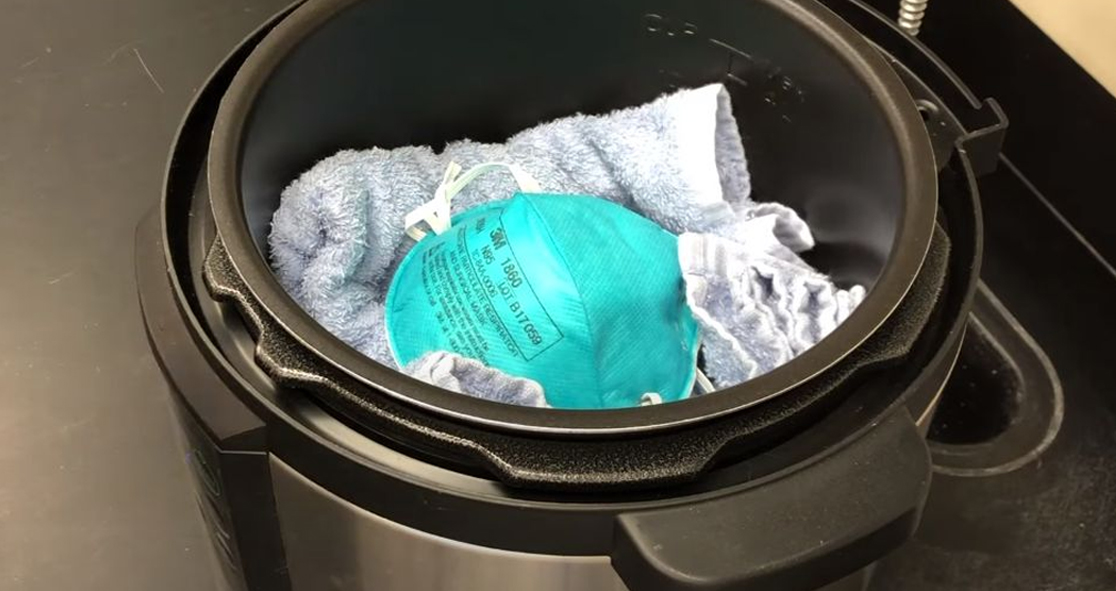A study has found a new way of sanitizing N95 respirator masks that play an important role in preventing COVID-19 infection.
Researchers from the University of Illinois, Urbana-Champaign, have found that N95 masks could be decontaminated after 50 minutes of dry heat in electric multi-cookers, enabling people to safely reuse the masks.
The study, published in the journal Environmental Science and Technology Letters, was led by professors Thanh “Helen” Nguyen and Vishal Verma.
N95 respirator masks protect the wearer against airborne droplets and viruses, including the novel coronavirus that causes COVID-19 infection.
Nguyen said, “A cloth mask or surgical mask protects others from droplets the wearer might expel, but a respirator mask protects the wearer by filtering out smaller particles that might carry the virus.”
There has been a very high demand of N95 respirator masks during the coronavirus pandemic, which has led to severe shortages for frontline health workers, prompting scientists to find easy and convenient ways to sanitize used masks.
Verma said, “There are many different ways to sterilize something, but most of them will destroy the filtration or the fit of an N95 respirator.”
“Any sanitation method would need to decontaminate all surfaces of the respirator, but equally important is maintaining the filtration efficacy and the fit of the respirator to the face of the wearer,” he added. “Otherwise, it will not offer the right protection.”
The team believed that dry heat is probably the best method to decontaminate and filtrate the masks – without requiring any special equipment or procedure. So, they decided to use an electric cooker that is easily available.
They found that a single cooking cycle of 50 minutes decontaminated the masks, inside and out, from four different types of viruses, including the new coronavirus.
Verma explained, “We built a chamber in my aerosol-testing lab specifically to look at the filtration of the N95 respirators, and measured particles going through it. The respirators maintained their filtration capacity of more than 95% and kept their fit, still properly seated on the wearer’s face, even after 20 cycles of decontamination in the electric cooker.”
The researchers said the electric-cooker method could be useful for frontline health workers, especially those who work in smaller medical centers that have no access to large-scale heat sanitization equipment.
They said the method might also be useful for people who may have an N95 respirator mask at home. The study was supported by the Environmental Protection Agency and the U.S. Department of Agriculture.























